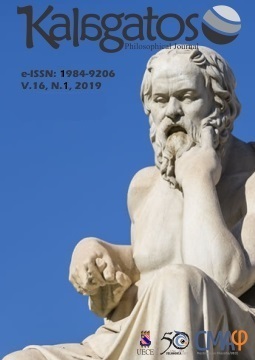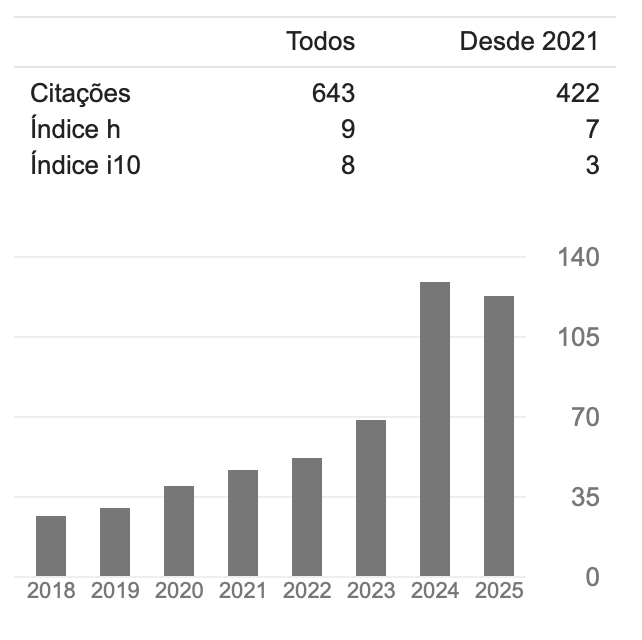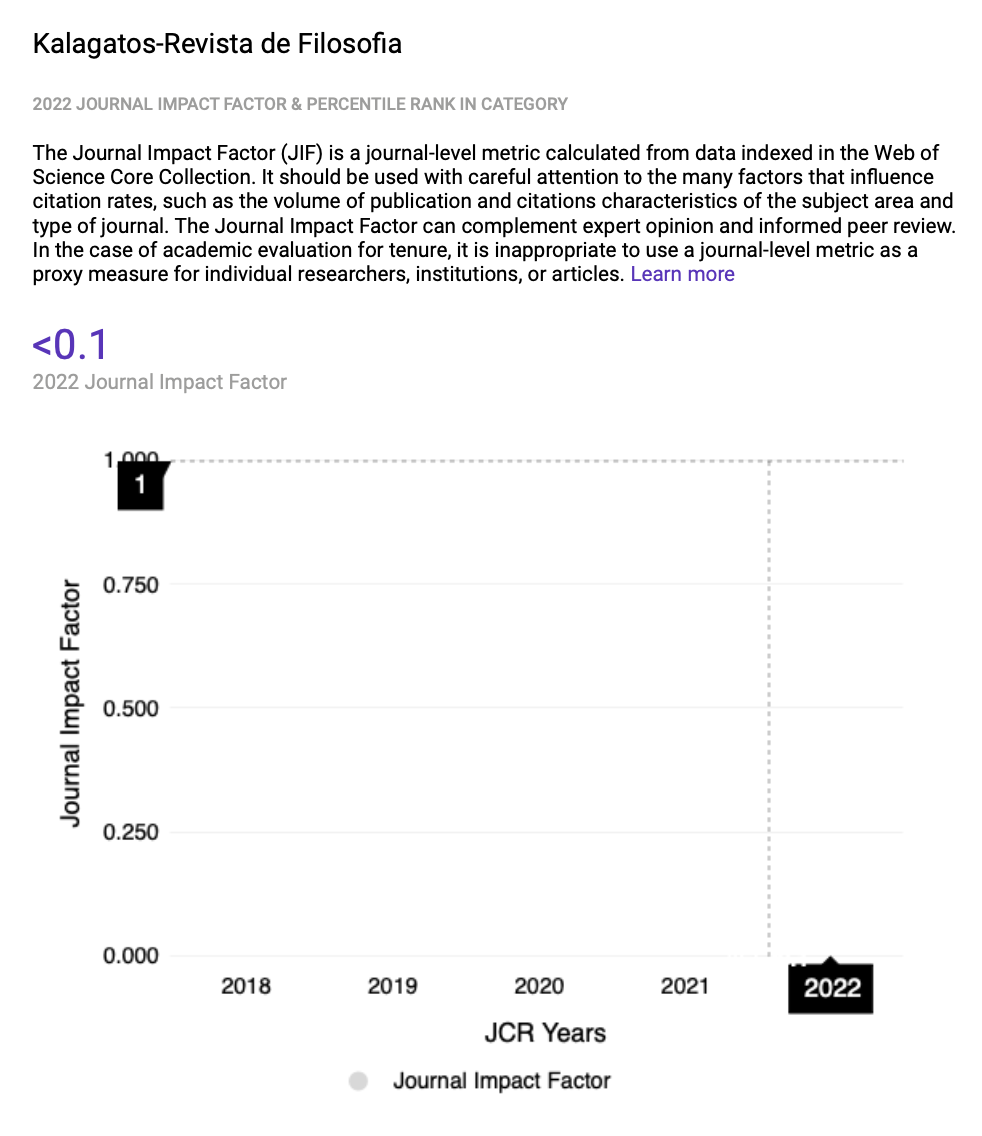Legitimidad transicional:
¿Cómo llegar desde el status quo al ideal?
DOI:
https://doi.org/10.23845/kgt.v16i1.813Palavras-chave:
Legitimidad, justicia, desigualdad, adaptación al status quo, justificación públicaResumo
La legitimidad es un criterio normativo de evaluación de las decisiones políticas que vincula un determinado procedimiento de justificación pública a un valor sustantivo, ya sea la justicia de sus resultados o el respeto expresado hacia los participantes. El objetivo de este artículo es doble. En primer lugar, muestra que las teorías de legitimidad democrática no han prestado suficiente atención al fenómeno de la persistencia de creencias dependientes de la desigualdad y a las justificaciones dominantes. En segundo lugar, construye una teoría de la legitimidad transicional que ni caiga en un realismo condescendiente ni en un utopismo inconducente.
Downloads
Referências
ADELANTADO José. Reestructuración de los Estados del Bienestar. ¿Hacia un cambio de
paradigma? Buenos Aires: Centro Interdisciplinario para el Estudio de Políticas Públicas. Documentos de Trabajo del CIEPP 97, 2017.
ANDERSON, Elizabeth. Social Movements, Experiments in Living, and Moral Progress: Case Studies from Britain’s Abolition of Slavery. The Lindley Lecture, University of Kansas, 2014. Recuperado de: https://kuscholarworks.ku.edu/handle/1808/14787.
BICCHIERI, Cristina y MERCIER, Hugo. Norms and Beliefs: How Change Occurs. En: XENITIDOU, Maria; EDMONDS, Bruce. The Complexity of Social Norms. Cham, Heidelberg: Springer, p. 37-54, 2014.
BOHMAN, James; RICHARDSON, Henry. Liberalism, Deliberative Democracy and “Reasons that All can Accept. The Journal of Political Philosophy, vol. 17, n. 3, p. 253-274, 2009.
CHAMBERS, Simone. Theories of Political Justification. Philosophy Compass, vol. 5, n. 11, p. 893–903, 2011.
COHEN, Joshua. Moral Pluralism and Political Consensus. En: COPP, David; HAMPTON, Jean, ROEMER, John (eds.) The idea of democracy. Cambridge: Cambridge University Press, p. 270-291, 1993.
EBERLE, Christopher. Religious Convictions in Liberal Politics. Cambridge: Cambridge University Press, 2004.
ESPING-ANDERSEN, Gosta. The three worlds of welfare capitalism. Princeton: Princeton University Press, 1990.
FISZBEIN, Ariel, SCHADY, Norbert. Conditional cash transfers: reducing present and future poverty. Washington DC: World Bank, 2009.
FORST, Rainer. A critical theory of politics: Grounds, method and aims. Reply to Simone Chambers, Stephen White and Lea Ypi. Philosophy and Social Criticism, vol. 41, n. 3, p. 225-234, 2015.
FORST, Rainer. The Right to Justification. Elements of a Constructivist Theory of Justice. New York: Columbia University Press, 2012.
FREEMAN, Samuel. Rawls. Abendon: Routledge, 2007.
GARRETA LECLERCQ, Mariano. Democracy and Deliberation: two models of public justification. Revista Latinoamericana de Filosofía Política, vol. II. n. 4, 2013.
GAUS, Gerald. Justificatory Liberalism. New York: Oxford University Press, 1996.
HABERMAS, Jürgen. Facticidad y validez. Madrid: Trotta, 1998.
HEVIA, Felipe. Mecanismos de participación ciudadana y control social en los programas de transferencia condicionada de renta en México y Brasil. Un análisis comparado. Nómadas, vol. 22, n. 2, p. 383–92, 2009.
HIRSCHMAN, Albert. Exit, Voice, and Loyalty. Responses to Decline in Firms, Organizations, and States. Cambridge, MA: Harvard University Press, 1970.
JOST, John T., & HUNYADY, O. Antecedents and Consequences of System-Justifying Ideologies. Current Directions in Psychological Science, vol. 14, p. 260-265, 2005.
JOST, John; BANAJI, Mahzarin; NOSEK, Brian. A Decade of System Justification Theory: Accumulated Evidence of Conscious and Unconscious Bolstering of the Status Quo. Political Psychology, vol. 25, n. 6, p. 881-919, 2004.
JOST, John; THOMPSON, Erik. Group-Based Dominance and Opposition to Equality as Independent Predictors of Self-Esteem, Ethnocentrism, and Social Policy Attitudes among African Americans and European Americans. Journal of Experimental Social Psychology, vol. 36, p. 209—232, 2000.
KELLY, Erin, MCPHERSON, Lionel. On Tolerating the Unreasonable. Journal of Political Philosophy, vol. 9, n. 1, p. 38-55, 2001.
KERSTENETZKY, Celia. Políticas Sociais: focalização ou universalização? Revista de Economia Política, vol. 26, n. 4, p. 564-574, 2006.
KYMLICKA, William. Left-Liberalism Revisited. En Sypnowich, Christine (ed.), The Egalitarian Conscience. Essays in Honour of G. A. Cohen. Oxford: Oxford University Press, p. 9-35, 2006.
PINZANI, Alessandro. Alcances E Limites de Um CCT Program : Quão Justificadas São as Críticas Ao Bolsa Família? Cadernos de Filosofia Alemã: Crítica E Modernidade, vol. 19, n. 2, p. 149-63, 2014.
QUONG, Jonathan. Liberalism without Perfection. Oxford: Oxford University Press, 2011.
RAWLS, John. Political Liberalism. New York: Columba University Press, 1993.
SCHEFFLER, Samuel. The practice of Equality. En FOURIE, Carina; SCHUPPERT, Fabian; WALLIMAN-HELMER, Ivo (eds.) Social Equality. On what it means to be Equals. New York: Oxford University Press, p. 21-44, 2015.
SWIFT, Adam. Public Opinion and Political Philosophy: The Relation between Social-Scientific and Philosophical Analyses of Distributive Justice. Ethical Theory and Moral Practice vol. 2. n. 4, p. 337-363, 1999.
WENAR, Leif. The Unity of Rawls’s Work. Journal of Moral Philosophy, vol. 1, n.3, p. 265-275, 2004.
WOLFF, Johnatan. Fairness, Respect and the Egalitarian Ethos. Philosophy & Public Affairs, vol. 27, n. 2, p. 97-122, 1998.
YOUNG, Iris. Inclusion and Democracy. New York: Oxford University Press, 2000.



















